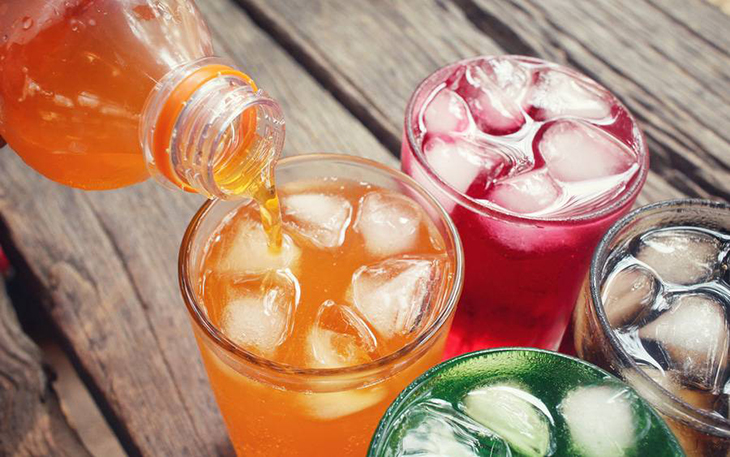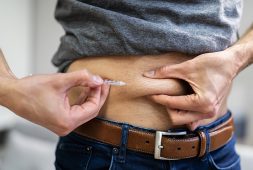
According to a recent study conducted by Harvard, individuals with type 2 diabetes (T2D) who consume sugary beverages face an 8 percent increased risk of premature death. However, making wise choices and opting for alternatives such as unsweetened seltzer, black coffee, unsweetened tea, or water may help prevent heart disease and promote longevity.
The study revealed that replacing sugary soda, energy drinks, or fruit juices with coffee, tea, low-fat cow’s milk, or plain water could potentially lead to a longer and healthier life for those with T2D. The findings, published on April 19, 2023, in The BMJ, indicate that these healthier beverage choices were associated with a reduced risk of premature mortality. So, for individuals living with type 2 diabetes, making smart beverage switches can make a significant difference in their overall health and well-being.
First Study on Sugary Drinks, Mortality, and Heart Disease Risk Specifically for T2D
According to the authors, numerous studies have established a connection between the intake of sugary beverages and various health consequences, including adverse cardiometabolic health, weight fluctuations, and premature mortality. However, it’s worth noting that these studies have predominantly focused on the general population.
“This is the first large-scale epidemiological study that systematically examined common beverages in relation to mortality and CVD [cardiovascular disease] outcomes specifically among diabetes patients,” said lead author Qi Sun, MD, ScD. He is an associate professor in the departments of nutrition and epidemiology at the Harvard T.H. Chan School of Public Health in Boston.
Dr. Sun pointed out that these discoveries could be valuable for individuals with T2D and their healthcare providers. While it has been widely acknowledged that people with diabetes might experience particular advantages from consuming wholesome beverages, there has been a scarcity of substantial data to substantiate this claim.
Replacing Soda With Tea or Water Could Help Lower Risk
According to the latest data from the Centers for Disease Control and Prevention (CDC), more than 1 in 10 Americans live with type 2 diabetes, and approximately 1.4 million American adults are diagnosed with the condition each year.
For the most recent study, researchers utilized health data spanning an average of 18.5 years from 9,252 women participating in the Nurse’s Health Study and 3,519 men participating in the Health Professionals Follow-Up Study. All the participants had been diagnosed with type 2 diabetes either at the beginning of the study or during its course.
Over the study period, researchers periodically gathered information on the consumption of various beverages among the participants. The beverages included sugar-sweetened ones like sodas, fruit punch, and lemonade, as well as artificially sweetened beverages, fruit juice, coffee, tea, low-fat cow’s milk, full-fat cow’s milk, and plain water.
The results showed that individuals with type 2 diabetes who regularly consumed sugar-sweetened beverages such as soda or lemonade faced an elevated risk of developing cardiovascular disease or experiencing premature death, or both, compared to those who opted for healthier beverages like coffee, tea, low-fat milk, and plain water.
Furthermore, each additional daily serving of a sugary beverage was associated with an 8 percent higher risk of all-cause mortality in people with type 2 diabetes.
On a positive note, the study found that people who regularly consumed any of the healthier beverages mentioned above experienced a decrease in the risk of heart disease and death from heart disease or any cause. Replacing one daily serving of a sugary drink with a healthier beverage was associated with up to an 18 percent lower risk of all-cause mortality and up to a 24 percent lower risk of death related to heart disease.
Drinking Diet Drinks Helps Helps
Consuming artificially sweetened beverages, such as diet sodas, as an alternative to sugary ones, was also linked to better health outcomes, albeit to a lesser extent. Substituting just one daily serving of a sugary drink with an artificially sweetened beverage was found to be associated with an 8 percent reduction in the risk of death from any cause and a 15 percent decrease in the risk of mortality related to heart disease.
“These findings suggest that when participants have a healthy dietary habit for a few years, we will see some positive changes in health and disease risk,” says Sun.
These findings align with what is generally known: Sugar-sweetened beverages are bad for your health, said Leonor Corsino, MD. She is an endocrinologist and diabetes and metabolism specialist from Duke Health in Durham in North Carolina. It also must be noted that she wasn’t part of the study. “It’s been shown before in other studies and it’s in alignment with what we tell our patients.”
In 2019, JAMA Network Open published a study that examined the consumption of sugary beverages in a sample of over 13,000 adults, including those without T2D. The participants were followed for a period of six years. The findings revealed a concerning correlation: for every additional serving of sugary beverages consumed, there was an 11 percent increase in the risk of all-cause mortality. Moreover, each extra serving of fruit juice was associated with an even higher risk of 24 percent for all-cause mortality.
If You Were Diagnosed with T2D, ‘You Should Make the Switch’
What this new research adds is that the large group that was studied had already been diagnosed with type 2 diabetes, Dr. Corsino noted.
“This study gives us further evidence to tell our patients with type 2 diabetes that avoiding these beverages is beneficial to health. It also suggests that replacing them with other types of drinks that don’t have a high sugar content is also beneficial,” she said.
However, it’s vital to know that this study has proven a link between different types of beverages and health outcomes. However, it doesn’t connect how sugary beverages are the root cause of early death, said Corsino. “It gives us an idea that they might be related, but it’s not definite.”
That being said, there are several other studies that do show this link, she stated. “I think the next step is educating the public that these drinks have a detrimental impact on your health. If you have type 2 diabetes, they’re not a great choice, and you should make the switch,” Corsino said.
Expert Advice on How Soda Habits
According to Healthy Food America, a nonprofit advocating for scientifically based food policies, sugary drinks are the primary contributor of added sugars in the typical American diet, accounting for nearly half of all added sugar intake. For instance, a 20-ounce Coke contains approximately 120 percent of the maximum recommended daily sugar intake as per the U.S. Food and Drug Association’s guidelines for a healthy diet.
Despite their prevalence, sugary drinks provide little to no health benefits and are recognized as significant factors driving obesity and diabetes, as pointed out by the organization.
In light of these findings, Sun emphasizes that individuals with type 2 diabetes should be selective about their beverage choices to maintain proper hydration and overall health.
Don’t feel frustrated if you can’t quit sugary drinks and go cold turkey, added Corsino. “Although some people can make that change right away, for many others, it takes time. Many people have been consuming these drinks for years or decades and it’s hard to change that habit overnight,” she said.
“If you are trying to cut down on sugary drinks, try a slow transition from sugar sweetened beverages to maybe the diet [and] artificial beverages, and then transition to water,” she shared.



